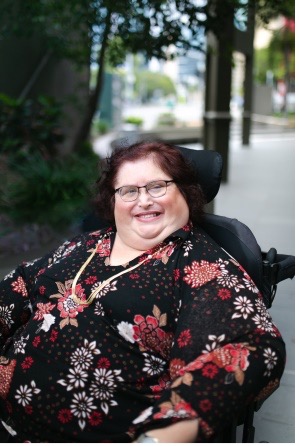This week we heard from our new WWDA President Karin Swift, about her experiences at WWDA and what’s next for our organisation.
How long have you been a member of WWDA?
Circa 1997. I first met our amazing Director, Carolyn Frohmader around then and learned there was an organisation funded to protect the rights of women and girls with disability. I had a passion for eliminating violence against women and girls with disability and was given the opportunity to write a paper on Domestic Violence and women with disability and present at various conferences. I consider this the start of my leadership journey.
What sort of opportunities have you had at WWDA?
I have had many opportunities at WWDA including leading the organisation on the Board as President and in other Board Roles. I’ve been involved in various Steering Committees for WWDA projects, such as WWDA Lead. I’ve represented the organisation numerous times on various committees and working parties. Perhaps most notably, I’ve represented WWDA three times internationally, once as a non-government organisation (NGO) Delegate as part of the Australian Government Delegation to the Commission on the Status of Women meeting 57 (CSW57) in 2013 at the UN in New York, USA. This was an amazing experience. The key theme of CSW57 was the elimination of all forms of violence against women. In 2012 I represented WWDA when I assisted the Australian Human Rights Commission (AHRC) to deliver training on human rights to women with disability and other stakeholders in Jakarta, Indonesia. This work was to ensure women with disability could take the lead in ensuring Indonesia met their obligations as the Indonesian Government had recently signed up to the Convention on the Rights of Persons with Disabilities (CRPD), This initial trip was followed up by another trip 6-months later with the then Disability Discrimination Commissioner Graeme Innes,, where we followed up with women at the initial training and spoke at a conference. In 2016 I represented WWDA as a Keynote Speaker at a conference in Seoul, South Korea, which commemorated the first 10 years of the CRPD.
As the new president of WWDA, what do you hold for the future of WWDA?
I think it is really important to ensure WWDA remains sustainable into the future. We are such an amazing organisation and have achieved many things on both the Australian and world stages. It is great to see WWDA invest in its membership through projects such as WWDA Lead and to see new and emerging leaders take their place in representing the organisation’s future.

